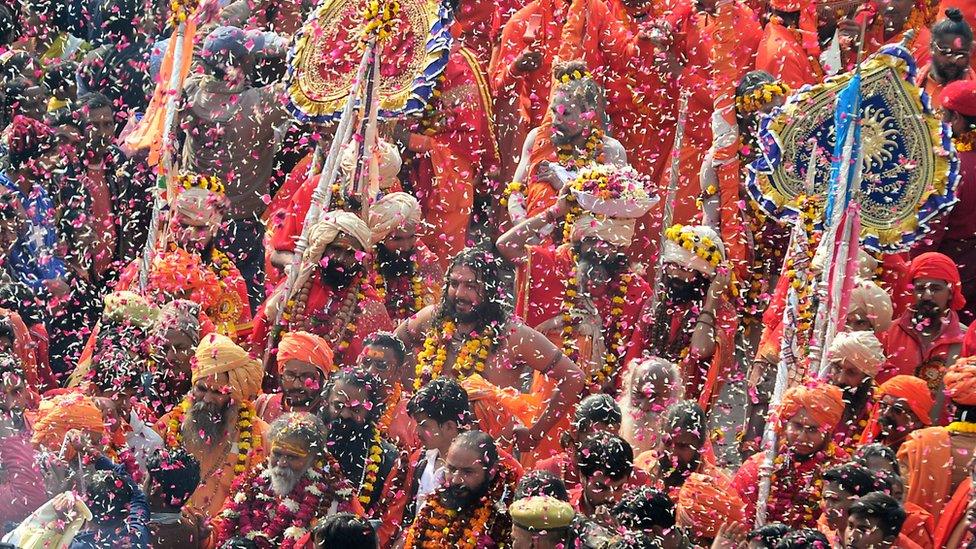Gadhimai: Nepal's animal sacrifice festival goes ahead despite 'ban'
- Published
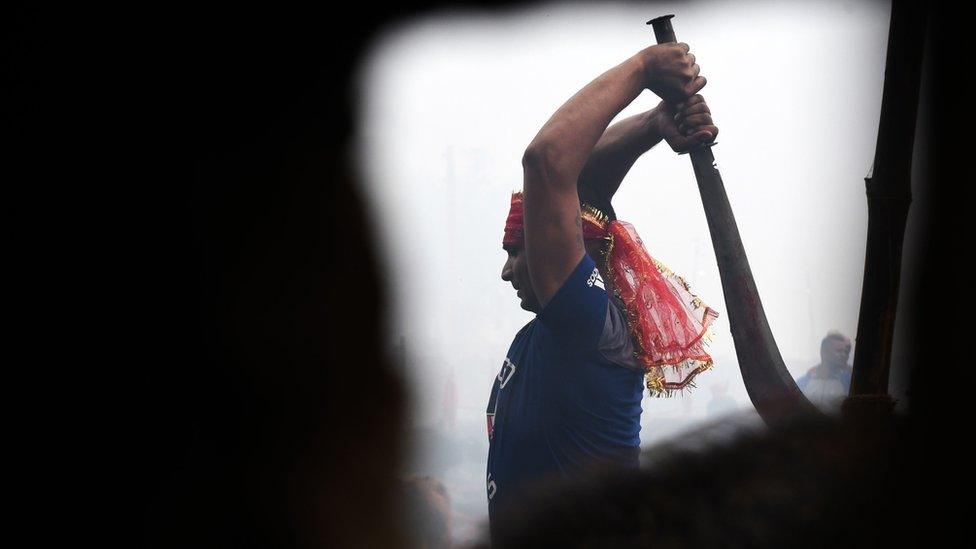
Less than five years ago, animal charities heralded the end of animal sacrifice at a religious festival dubbed "the world's bloodiest".
But on Tuesday, the Gadhimai festival began with the killing of a goat, rat, chicken, pig and pigeon.
According to animal activists who travelled to a remote corner of Nepal for the festival, it was followed by the deaths of thousands of buffalo.
Some 200,000 animals were killed during the last festival, in 2014.
Warning: Some people may find pictures in this article upsetting
The tradition dates back to a priest who was told about 250 years ago in a dream that spilled blood would encourage Gadhimai, the Hindu goddess of power, to free him from prison.
For the hundreds of thousands of devotees who travel to the temple from India and Nepal, it is an opportunity to have their wishes fulfilled.
"I had four sisters. Eight years ago, I made a wish for a brother and the goddess blessed us with him," Priyanka Yadav, of Janakpur, explained to BBC Nepali.
However, animal rights activists have long argued it was cruel.
Then, in 2015, the Humane Society International (HSI) and Animal Welfare Network Nepal (AWNN) announced "victory", saying animal sacrifices had been banned.
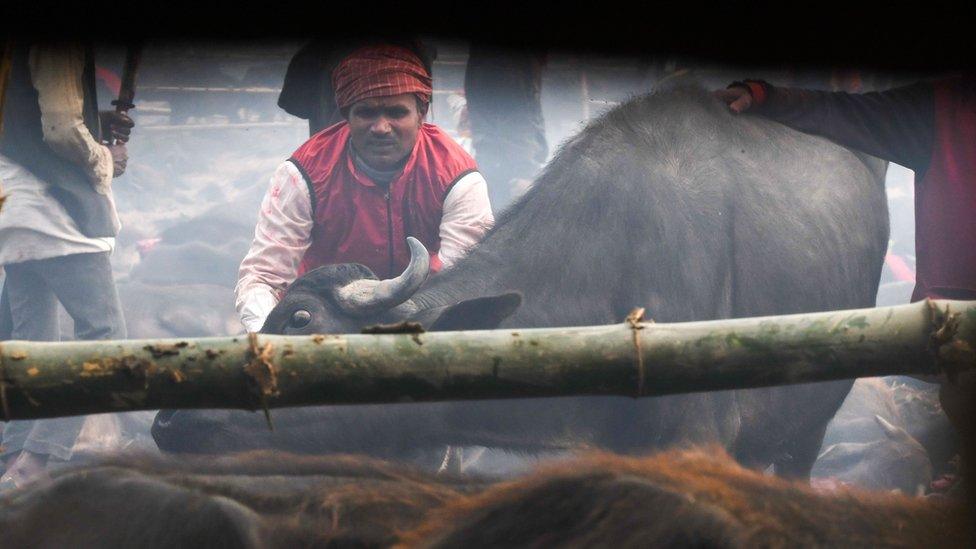
But Ram Chandra Shah, the temple's then chairman, told the BBC no such arrangement had been made.
"Devout Hindus could be requested not to offer animal sacrifice to the goddess, but they could not be forced not to do so - nor [could] the tradition be banned or stopped completely," he said at the time.
Attempts were made to curb the influx of animals ahead of this year's two-day festival: Indian authorities began seizing animals unlicensed traders were trying to bring across the border. Nepal's government has also not provided any support, according to the festival's chairman, Motilal Kuswaha.
But the animals continued to arrive at the temple in Bariyarpur, about 150km (93 miles) south of Nepal's capital, Kathmandu, and on Tuesday morning around 200 butchers prepared to begin their work.
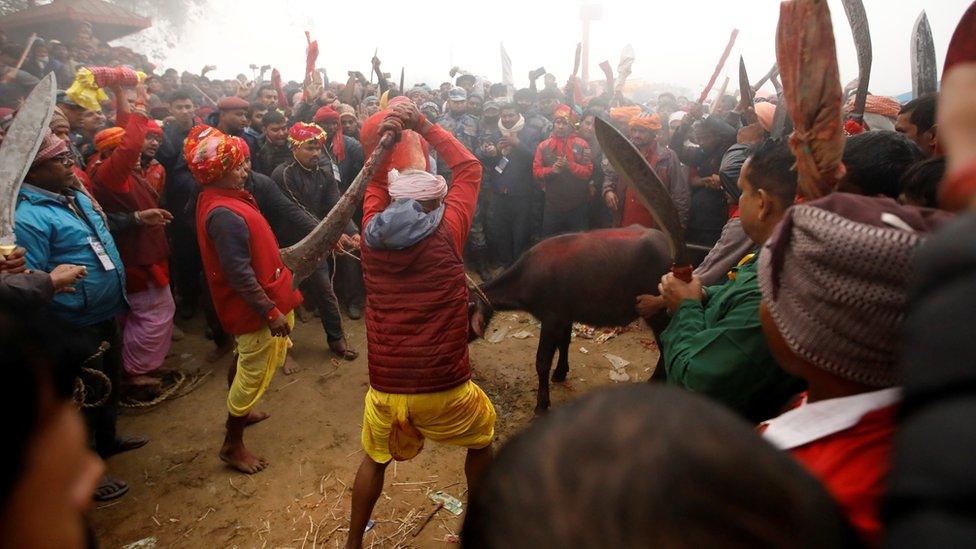
The expense of the festival - including free meals and tents - was being covered by donations, Mr Kushwaha told the BBC.
"We had tried not to support it but people have faith in the tradition and have come here with their offerings," Birendra Prasad Yadav, of the festival organising committee, told news agency AFP.
Despite the festival beginning, however, animal activists were still hopeful their message was getting through. The Humane Society India said its director, Alokparna Sengupta, challenged the temple priest, external directly.
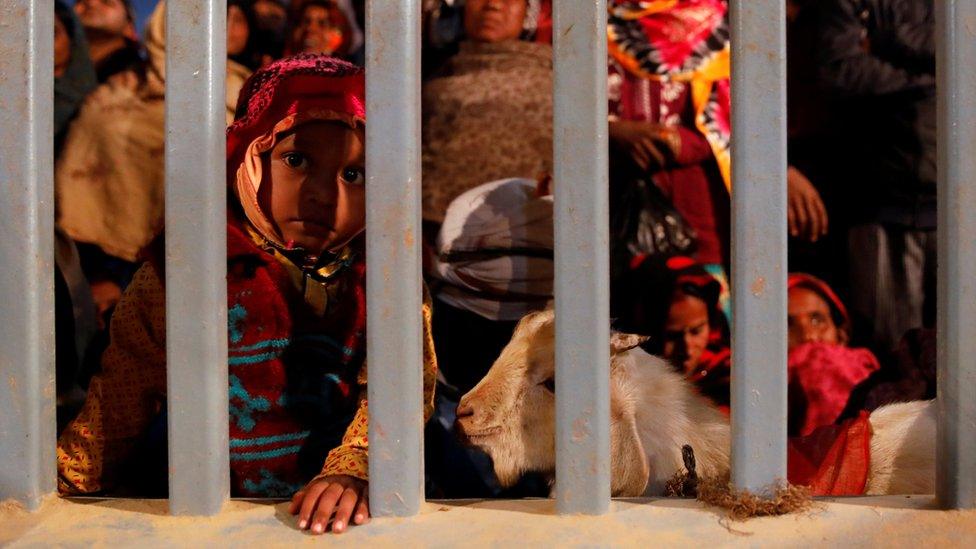
Her pleas were reportedly refused, but some attendees told reporters they were not going to sacrifice any animals this year - signs things may be changing, according to activists.
"The temple committee seems to be shaken by the campaigns as well as the government. The number of animals sacrificed are gradually decreasing," said Amruta Ubale of Animal Equality India.
- Published31 July 2015
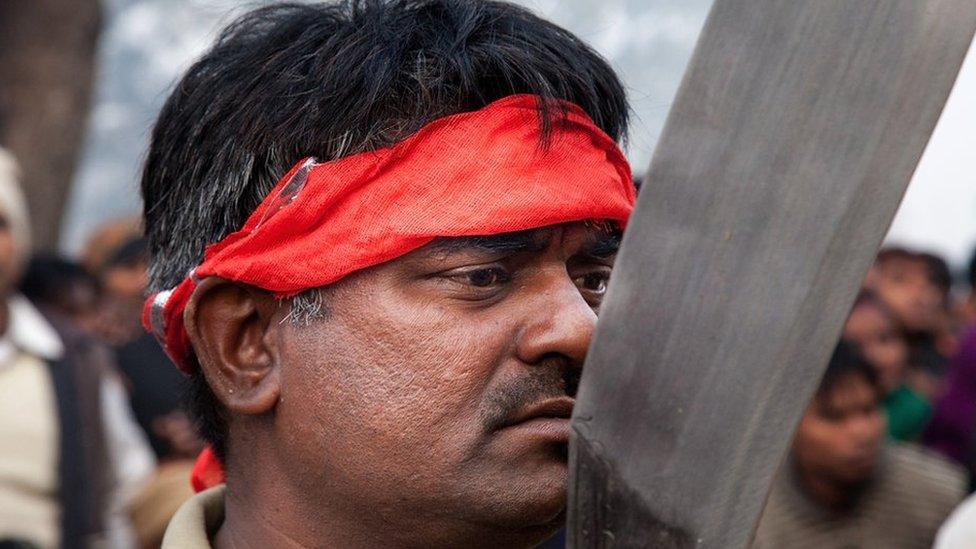
- Published28 November 2014
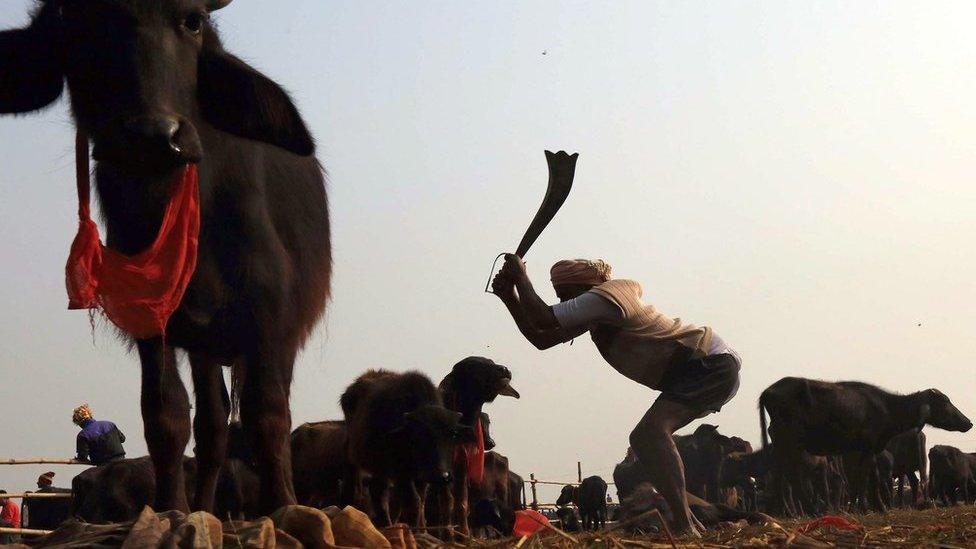
- Published4 July 2019
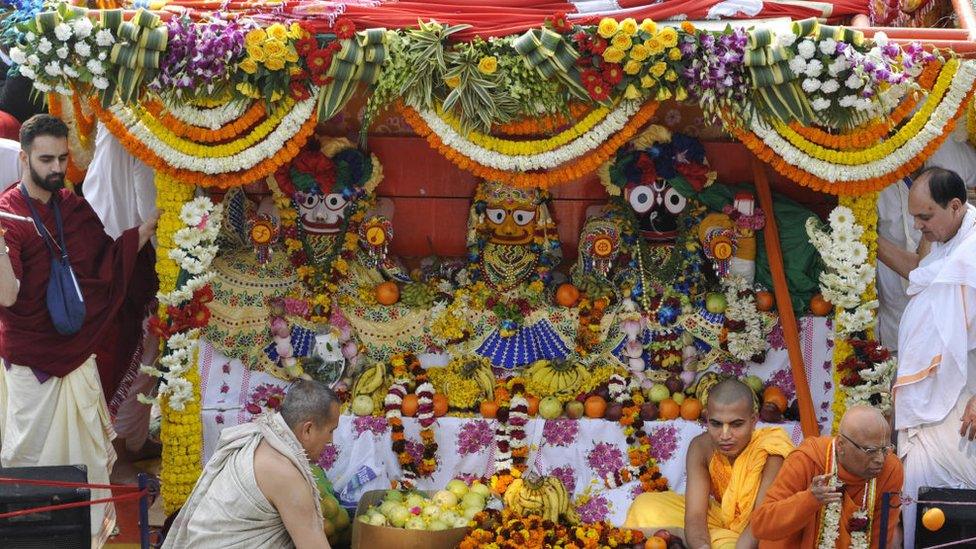
- Published14 January 2019
